By Joanna Auron-Gorska, PhD.
Beit Polska board member
October 2013
“If we have Jewish people who are making a life now in Poland, it behooves us, as our brothers’ keepers, to be involved positively“, says Lucia Czarny Goodhart. Goodhart is a Jew, an Israeli, an American and a Pole – all in one. Polish-born, she has taught from New Mexico to Baltimore, is an international traveler, and a facilitator of perilous intercultural interactions, as well as a charismatic persona with an abundance of physical and mental energy. Lucia has worked with people of various nationalities and personal convictions, from conflicting religious and ethnic backgrounds and differing walks of life, on her life project: helping people speak to each other without prejudice. Inexhaustible in her efforts to make the world a better place, a believer in Mitzva goreret mitzva3, Lucia, twice the runner-up for the Covenant Award for a Creative Hebrew Educator, calls herself a “proud Polish expatriate”. How is it possible that this Jewish activist and educator considers herself a Pole when World War 2 tore a rift between the Poles and the Jews which it seems impossible to bridge? Why has she returned to Poland time and again over the last 25years?
Joanna Auron-Górska: What do you mean when you call yourself a “proud Polish expatriate” and, even, “a Pole”?
Lucia Goodhard: Well, I am one, legally. And I have an important connection with Poland. My father served in the Polish cavalry as did his father before him. They were proud: they never said negative things about Poland as a country. But it’s not just about sentiments. It’s about eagerness, and reality, and acceptance to who I am. When I see the photographs of myself in Poland as a baby, I say “Look, what a Polish baby I am!”.
Ever since I first came back to Poland, I was looking for my ayah. I never found her, but I always carry the picture of her and me. So I have these deep-rooted connections. I believe in geographies as being part of one’s personality. When I dream, I can dream in Polish, I can dream of Polish foods and smell them. You cannot take that out of a human being; it’s part of my DNA. To that end, what do I do with all of that? Well, I am a tourist in my own despair… I am sad that people bring out all the stereotyped beliefs and use it as political and moral issues in their lives.
When Shevah Weiss, who is a good friend of mine, was ambassador, I used to go with him to all kinds of official functions. I was on the board for Oswiecim synagogue because of my grandmother: my family comes from there for generations, both sides. My grandfather Emil Heitner and my grandmother and my grandmother Eva Better were born there and married there. My grandmother was quoted to say that she was born in the most evil place in the world but it was a place where she had a wonderful life. It was a beautiful city, from which they moved to Katowice, where my grandfather Emil opened a high-end women’s shoe store in the rynek. They all spoke German; my great-grandfather Moritz Better was recruited into the Franz Josef army for WW1. A lot of places… That is why I am a tourist… in my own despair.
You can reinvent yourself through all kinds of relationships. Let me explain. I have three childhood memories. Firstly, my ayah, who was a good Polish German Catholic, from Slask. I was three years old. She took me to a cemetery chapel in Katowice, and I remember getting down on my knees – she would pull me down with her right hand in front of the statue; and it was very nice. I can remember the smell of incense, and looking up at a blue Maria… I can still smell the incense; it’s been in my heart for all these years. There is a beautiful blue Madonna in Sobieny that looks just like her. The second memory is of my father’s taking me to a café in Katowice to meet with his friends, to a café that had on the top outside a penguin that shone; it was very charming for a child. I used to hear trains. I decided I was going to find it. In the old rynek I walked to where the trains would be, and I found it: the penguin is still up.
Years later, I would go to Nazareth with my father, who had a good friend – a Polish priest, and once the priest said to me “Drink form this water. This is Mary’s holy water: you’ll have sons.” And… I have 2 sons. This proves something we already know from history books: Jewish Poles, Polish Jews, have always had this dichotomy, this split personality, this schizophrenia, because we love Poland, we want to be part of Poland, and some of the things we adopted readily. Every time I go to these villages where I see the blue Marias I stop for a moment.
J.A-G: You have good memories and bad memories from Poland. How do you not become angry, or discouraged?
L.G.: I live on hope. I believe in never giving up, in youth, and I believe in their energy and love of life; a young person can make even the oldest, ugliest, most evil person smile.
My interest in Poland is to try to deal with stereotypes, whether it is on the Polish end: the `all Jews are communists’ or, from the other perspective, of Americans and Jews, `Poland was worse than Germany’. Every time I have these discussions, I get, `No, no, my grandfather said that the Poles were worse anti-semites than anybody else”. I try to pass all that and just deal with the reality of 21st century, and if we have Jewish people who are making a life now in Poland, it behooves us, as our brothers’ keepers, to be involved positively, which is why I keep coming back to Poland – even if I just sit with my non-Jewish families, so that they know a Jew without horns, so that I can cook for them, so that I can take care of their children, so that they have a connection. It’s very important because it’s also my homeland.
The stereotypes hurt me as a teacher: I would never say that “all blacks are criminals, all Jews are doctors”, but yet I hear it from intellectuals, w/o their even realising what they’re saying… over cocktails and in conferences. And, Boże mój, what do you do with things like that? The best way is to do human interaction, human touches. When I brought to Sobienie-Jeziory my college students from Sri Lanka, from Ghana … and people stood and looked. And staring, one woman stopped and was looking at my student from Uganda, and I saw her hand. “Do you want to touch her? She’s real”, I asked. So she touches her, and says: “Śliczna śliczna, jaka ładna kobieta“1, on and on. And I said to my student, “Relax; she has never seen a color like this”. So that same afternoon my student dressed in their national costumes, and the student from Uganda, this young woman, she looked just like a bird of paradise in her colorful costume. (It was part of their lesson that my students had to teach something, whether it be rock’n’roll or the American constitution.) There in the gym 400 kids gathered, and after this girl had changed into her clothes you could hear a pin drop. Then the Polish kids broke out in screams and clapped. It was the most beautiful things they’d ever seen, in this colorless little shtetl village of Sobienie. And then my students slept in the Polish students’ houses. When they gathered in the morning, they came with kielbasa, pierogis, mushrooms, grzyby in jars to take home. And the kids were e-mailing each other. It was a real simcha. And it was good: through students’ interaction, you can make a big difference.
J.A-G: Why did you choose Sobienie Jeziory?
L.G.: I have no connection with it (laughter); this is “another Poland”, like my mother used to say. The closest is my father’s home town of Opatów. What I do there is I make myself popular with the citizens, and with the priest, and with the local school… Because I want them to be the caretakers of the cemetery there. I told them: “You are the evil shtetl”. The place already has a bit of notoriety. It appeared in the news in Poland. It was in the newspaper. Yet I don’t have permission to fence it.The mayor would love to help me but he needs permission from the gmina.2
. The mayor agrees: he doesn’t want this “black mark” either. And the priest agrees. So I keep coming there to make sure the tombstones haven’t been moved – again. There are close to a thousand cemeteries like this in Poland: neglected, abused. The same thing goes on in Otwock cemetery; shanda!
The problem with Sobienie was that all the tombstones had been taken by the local citizens. There were pieces of the crowns of the matzevot in the gardens like a fence; there was a man who refused to take the matzevot from the ground that led to his outhouse; half of those matzevot were in the farmers’ outhouses.
We collected all the tombstones; we collected all the matzevot,
J.A-G: How did you start your work in Poland?
L.G: I started in 1986. A whole bunch of Polish Jewish came to the yiddish club at the theatre, and I brought my students (some of them were pobożny3 kids, too) and they would sit around and talk. And then we went to a high school in Warsha that used to teach Hebrew as a second language. I used to bring them Hebrew books, and every one of my students too had something in their suitcase to bring to that school. So I made these little connections and I know that it made a difference in some students. And if you change one person, that person will change another person. “Mitzva goreret mitzva“4 does work.
I have been to every shtetl. In Orla, I crawled through the window of the synagogue – it was locked and nobody could open it. So I jumped… Only a stupid Israeli does such a thing. Luckily, I jumped into something soft… I know the backwoods of Poland better than most Polish people. I have crawled into mountains, into every hole looking for cemeteries. I have been documenting cemeteries for years: taking pictures of the epitaphs, making sure that the locals meet me… And they keep saying to me “You’re nor Jewish”, and I say “Oh, but I am.” They cannot understand it: I don’t look Jewish, and I speak to them in Polish; to them, most of the Jews are already dead, the old ones; and what am I doing? Then they try a different tactic: your father wasn’t Jewish. “No, he was Jewish”. It’s fun.
J.A-G: You don’t mind?
L.G.: No, I like it. I put my arm around them, and I say, “Come on… You know I am Jewish, you can hug me”. But the best story is: I am in Warsaw, in Stare Miasto5, on Saturday morning, waiting outside the building to meet my friends. It’s early morning. An older man, przystojny, a nice Polish guy, a gentleman, bringing his śmiecie6 to the dumpster. I’m standing there and we start talking. He says, “I don’t know what’s happening to our country… We have now a problem: the Jews are coming back. They will bring communism, they’re taking over, they’re buying out our apartments.” So I said, “How do you know they’re Jews?” He says, “I can smell them”. Now I come closer to him: I am shorter, but I am in his face. “You can smell Jews?” I ask. “How do you smell Jews?”. He says, “I know because I used to drive this general”. All kinds of stories. I say, “I wish I could smell enemies like that”. And I add, “I want to wish you a wonderful sobota7, and I hope you are well for the rest of your life. My name is…, I was born in…, and I am a 100 percent with Jewish blood” (Poles always ask me if I have Jewish blood…What is it like, I wonder: is it blue, is it green?) He was silent, and then I said, “You don’t need to apologize. I know how old you are, I know that you suffered, and I forgive you.”
J.A-G: So he cannot smell a Jew, or a communist, after all.
L.G.: I hope I didn’t insult him; he did not insult me. He’s a man of his time. I want you to know that, in Poland, we are making this big transition to a whole new society, but we’re still schlepping with us all these horrible stereotypes; and it’s got to end. And it’s going to end with the young people who do not hold with these stereotypes. All of Europe has got to change, but, especially, Poland. It became Christian rather late, and it cannot let go of certain Catholic notions: the idea of the Jewish devil, for example. The biggest obstacle is that the church has not been able to become a little more tolerant. They hid a picture behind the panel in the cathedral in Sandomierz, (in the picture, they had Jews murdering a Christian child for his blood) after we wrote letters and petitions; but the picture is still there… and the synagogue, which is now an archive, is right on the other side of the street.
J.A-G: How do you decide who you are with all the different places?
L.G.: And how do I decide which language to dream in? I learned how to survive by grounding myself with good people around me, and having the most understanding family: my husband, who is a 7th generation American yankee, and who’d never met anybody like my family. He is my rock. He has put up with multiple cultures, places. And so my two sons are 8th generation Americans
J.A-G: What else would you like to do in Poland?
L.G.: I would love to teach a Bnei Mitzvah group in Poland. I can do this online, and me and Anna Klein could do this really well, and do the right thing. I can teach all three generations, together. For me it would be a tiferet: a crown, for Poland.
1.) “śliczna śliczna, jaka”: “Pretty, pretty, what a beautiful woman”
2.) From the German, Gemeinde; used on reference to The Union of Jewish Religious Communities in Poland
3.) “pobożny”: religious
4.) “Mitzva goreret mitzva”: One good deed [commandment] leads to another and another.
5.) “Stare Miasto”: Polish for “The Old City”
6.) “śmiecie”: rubbish
7.) “sobota”: Saturday, Shabbat
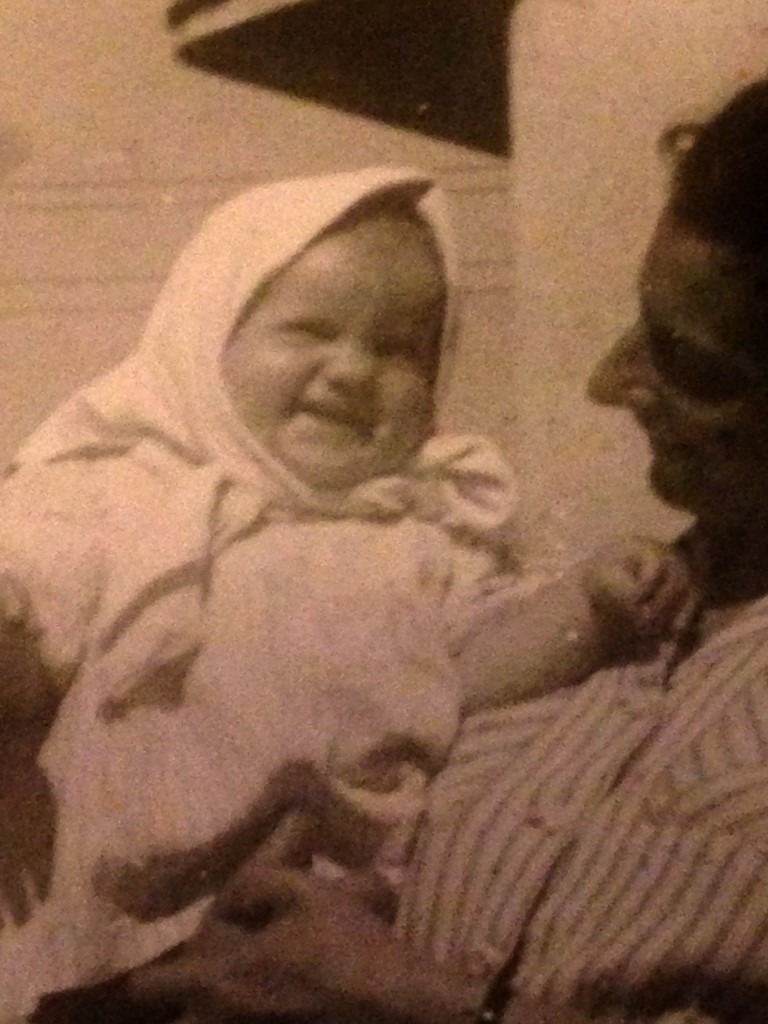
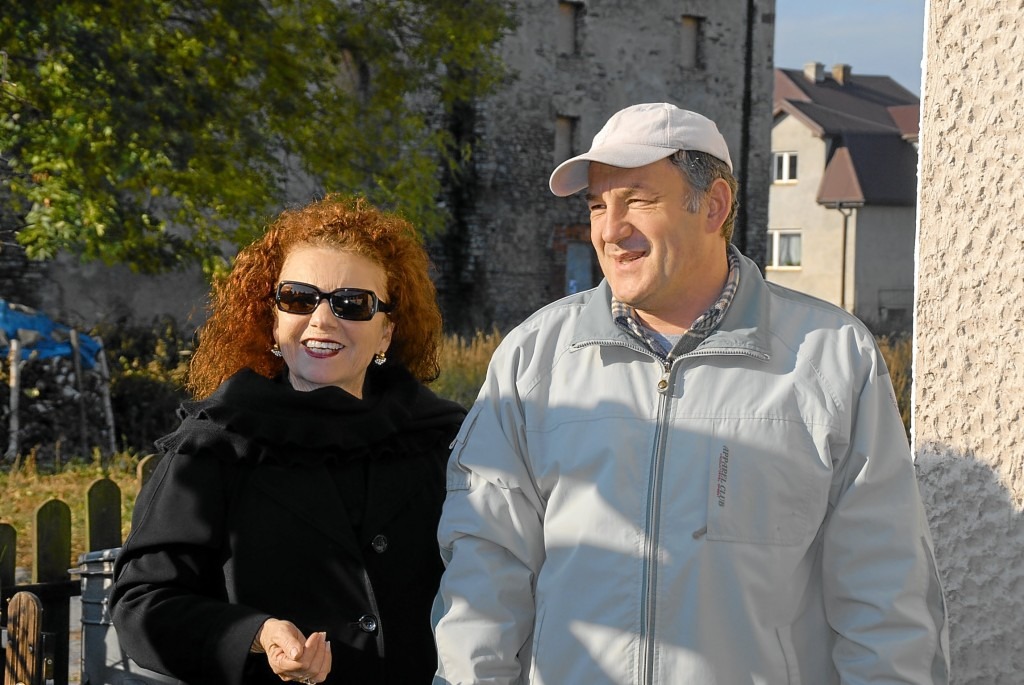
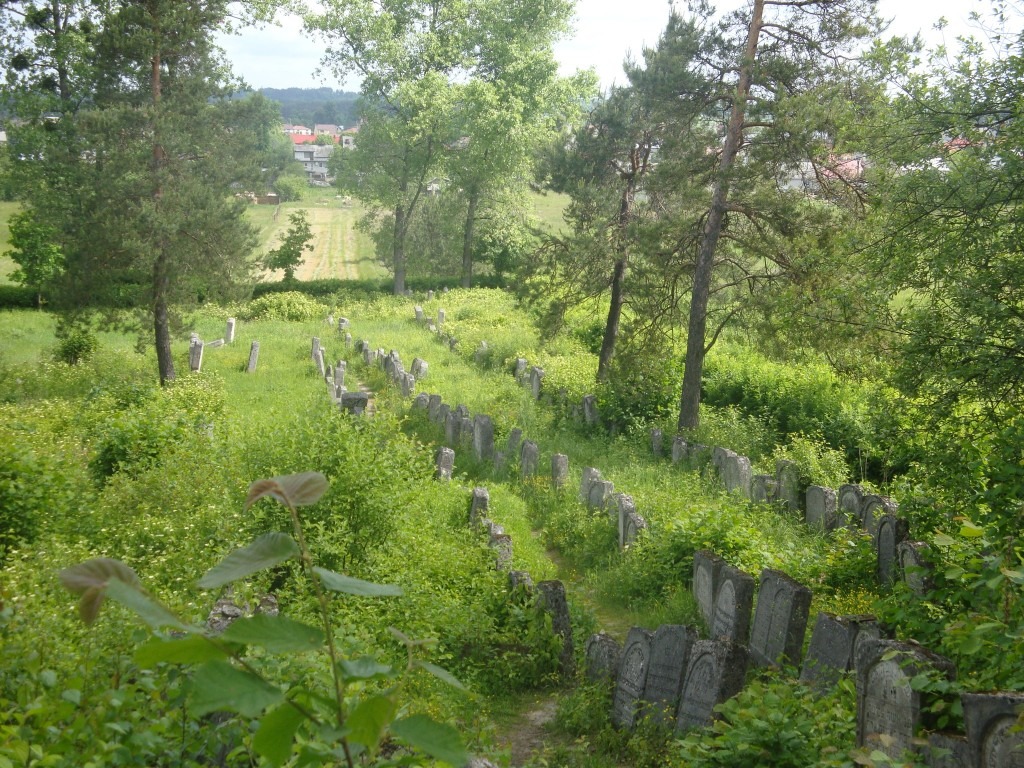
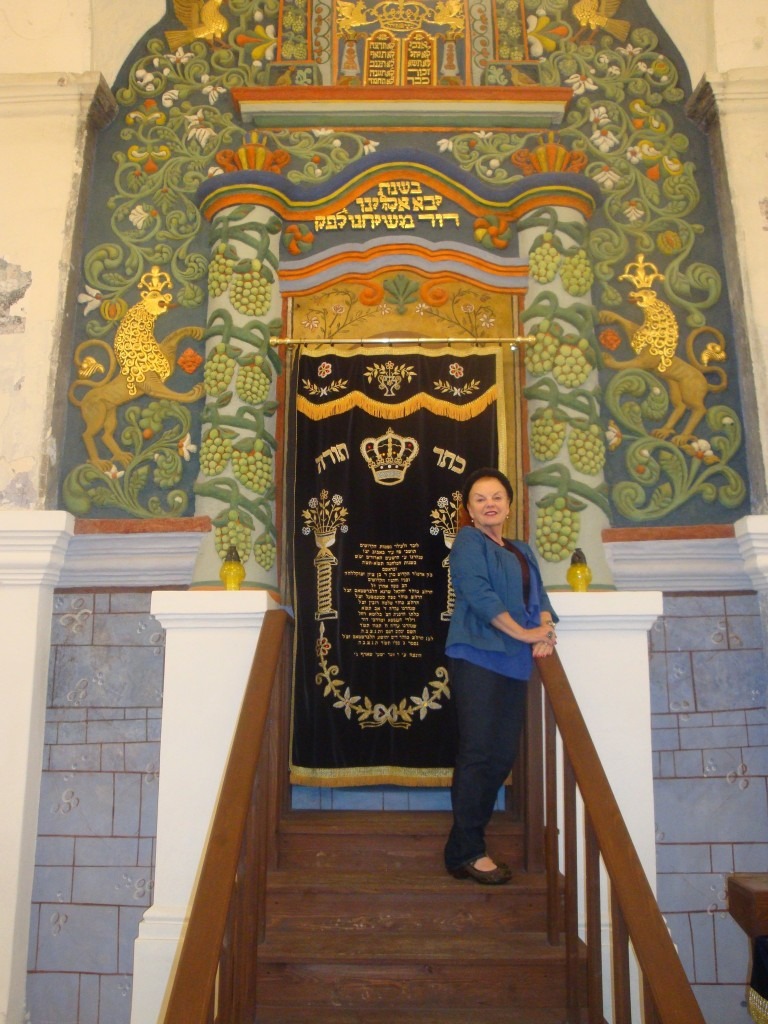
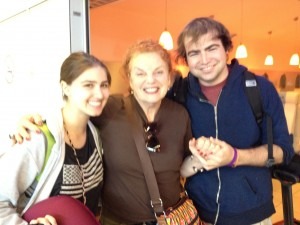
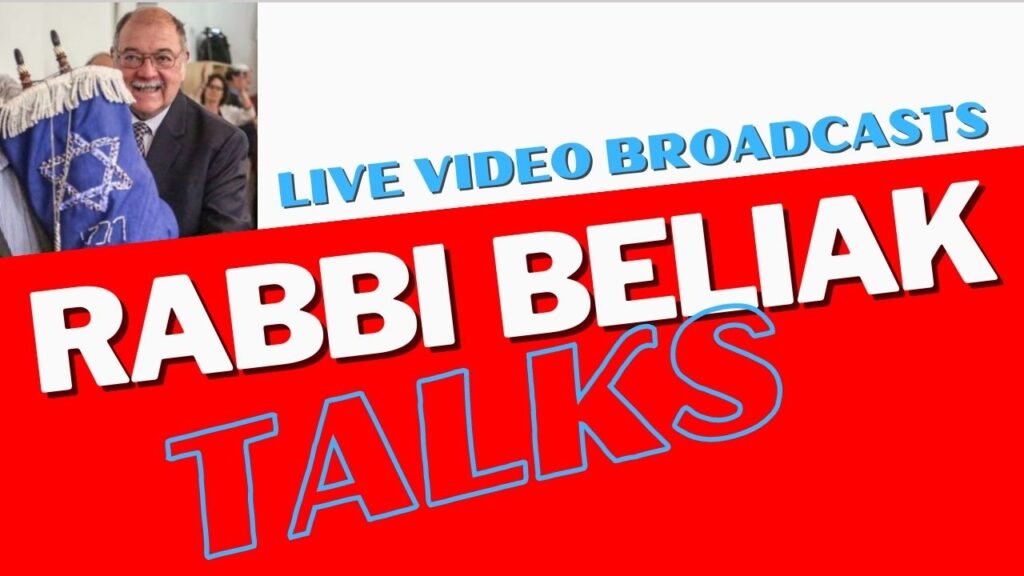
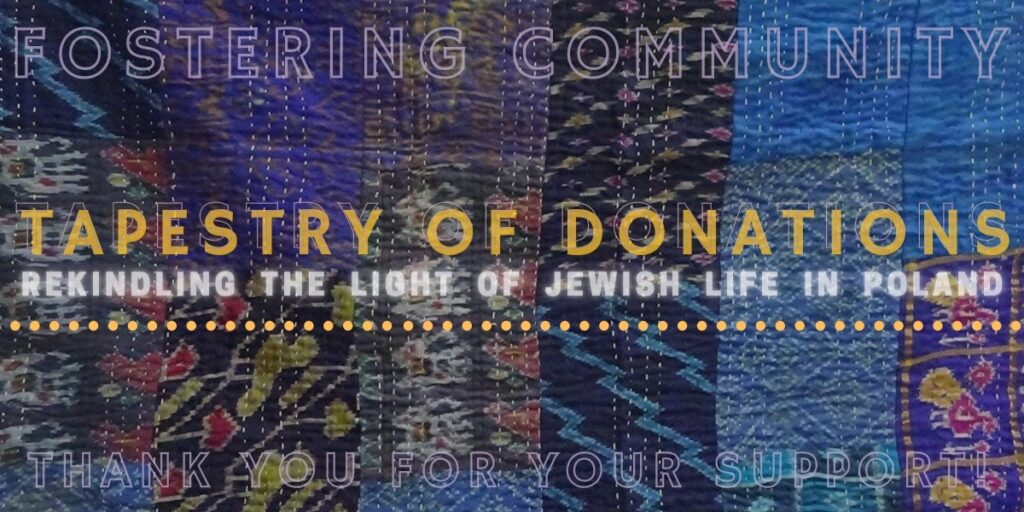
That is the most beautiful article about a true angel on earth.
Very great post. I just stumbled upon your blog and wanted to say that I have truly enjoyed browsing your blog posts. After all I will be subscribing in your feed and I hope you write again very soon!